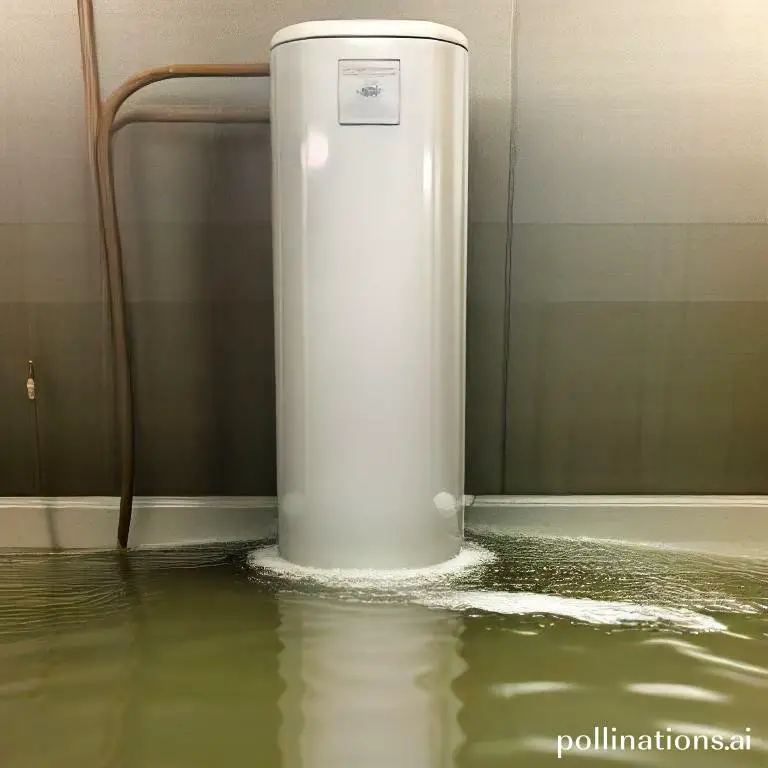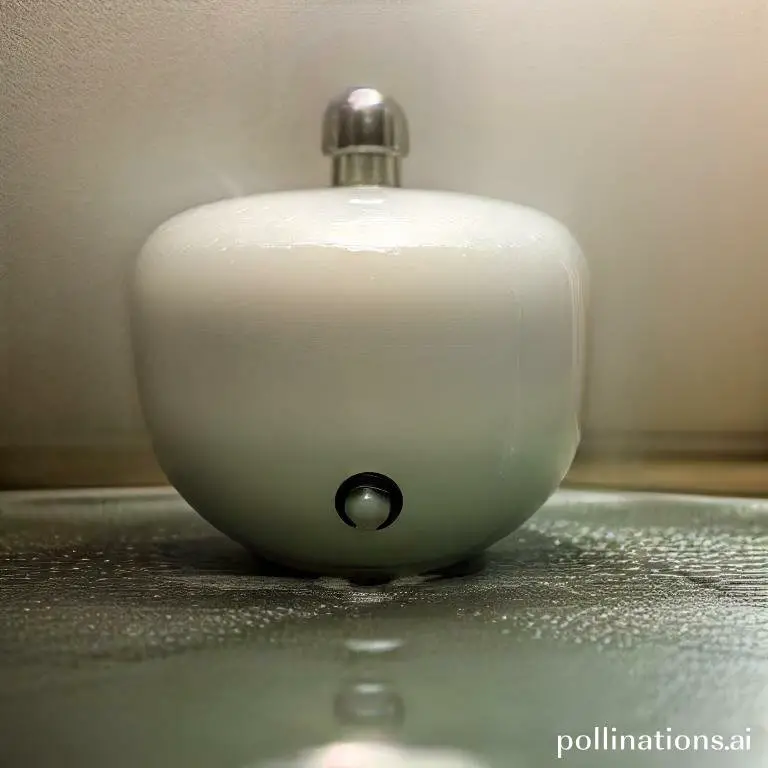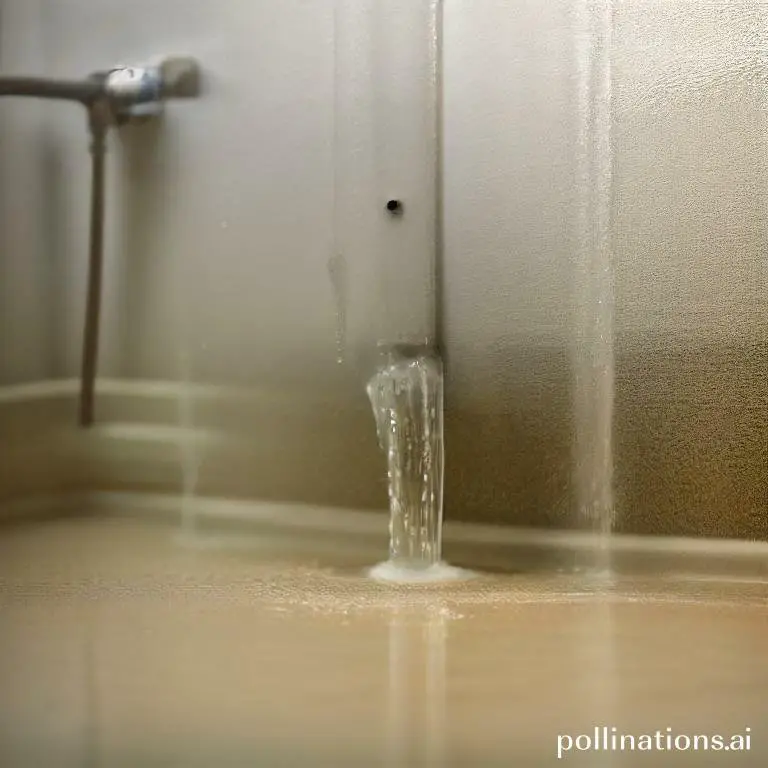
II. Leaks can also cause damage to surrounding areas, such as floors and walls, leading to costly repairs and potential health hazards from mold and mildew growth.
III. Regular maintenance and prompt repair of leaks can help maintain the efficiency of the water heater and prevent costly damage to the surrounding area.
Water heater leaks can have a significant impact on the efficiency of your system. These leaks can cause water wastage, leading to increased utility bills and unnecessary expenses.
Additionally, leaks can also result in decreased water pressure, affecting the overall performance of your water heater. Fundamental to address these leaks promptly to ensure optimal efficiency and avoid any further damage to your system.
By taking proactive measures to fix leaks, you can not only save money but also amplify the lifespan of your water heater.
Causes of Water Heater Leaks
Water heater leaks can be caused by various factors, including:
1. Age of the Water Heater
One of the common causes of water heater leaks is the age of the unit. Over time, the internal components of a water heater can wear out, leading to leaks. Regular maintenance and timely replacement of an aging water heater can help prevent such leaks.
2. Sediment Buildup
Sediment buildup is another cause of water heater leaks. Over time, minerals and sediments can accumulate at the bottom of the tank, causing corrosion and eventually leading to leaks. Flushing the water heater regularly can help remove the sediment and prevent leaks.
3. Corrosion
Corrosion is a common issue with water heaters, especially in areas with hard water. The corrosive elements in the water can cause the tank to deteriorate, resulting in leaks. Installing a sacrificial anode rod can help prevent corrosion and extend the lifespan of the water heater.
4. High Water Pressure
Excessive water pressure can put strain on the water heater, causing leaks. Installing a pressure regulator can help control the water pressure and prevent leaks due to high pressure.
5. Loose Connections
Leaky connections between the water heater and the plumbing pipes can also cause water heater leaks. Essential to ensure that all connections are tight and properly sealed to prevent leaks.
Touching on water heater leaks, it is crucial to address the issue promptly to prevent further damage. Ignoring leaks can lead to water damage, mold growth, and potential safety hazards. If you notice any signs of a water heater leak, such as puddles or dampness around the unit, it is advisable to seek professional assistance for repair or replacement.
| Cause | Solution |
|---|---|
| Age of the water heater | Regular maintenance and timely replacement |
| Sediment buildup | Flushing the water heater regularly |
| Corrosion | Installing a sacrificial anode rod |
| High water pressure | Installing a pressure regulator |
| Loose connections | Ensure tight and proper sealing of connections |
Signs of Water Heater Leaks
Water heater leaks can cause significant damage if left unaddressed. It is crucial to identify and resolve any leaks promptly to avoid costly repairs or potential safety hazards. Here are some common signs that indicate a water heater leak:
Water Puddles Around the Water Heater
One of the most obvious signs of a water heater leak is the presence of water puddles around the unit. If you notice any pooling or wetness near your water heater, it is essential to investigate the source of the leak.
Rusty Water
Another indication of a water heater leak is the presence of rusty or discolored water. If you turn on your hot water faucet and notice a brownish tint, it could be a sign that your water heater has developed a leak.
Strange Noises
Unusual noises coming from your water heater, such as popping or banging sounds, can also signal a potential leak. These noises may indicate that water is leaking and coming into contact with the heating elements or sediment buildup inside the tank.
Decreased Water Pressure
If you experience a sudden decrease in water pressure, it could be due to a water heater leak. Leaks disrupt the normal flow of water, leading to reduced pressure in your faucets and showers.
Increased Energy Bills
A sudden increase in energy bills without any other explanation could be a result of a water heater leak. Leaking water heaters often work harder to maintain the desired temperature, leading to higher energy consumption and subsequently higher bills.
It is crucial to address water heater leaks promptly to prevent further damage and ensure the efficient operation of your water heating system. If you notice any of these signs, it is recommended to contact a professional plumber who can diagnose the issue and provide necessary repairs.
Effects of Water Heater Leaks on Efficiency
Water heater leaks can have significant effects on the efficiency of your system. Absorbing these effects is crucial for maintaining a functional and cost-effective water heating setup. This section explores the various ways in which water heater leaks can impact efficiency, including wasted water, decreased hot water supply, increased energy bills, damage to the water heater, and reduced lifespan of the water heater.
1. Wasted Water
One of the primary consequences of water heater leaks is the wastage of water. Even a small leak can result in a significant amount of water being lost over time. This not only contributes to water scarcity but also adds to your water bills.
2. Decreased Hot Water Supply
Water heater leaks can also lead to a decreased supply of hot water. Leaks cause a loss of pressure, which can affect the system’s ability to deliver hot water efficiently. This can be frustrating, especially when you rely on a consistent supply of hot water for daily activities.
3. Increased Energy Bills
Leaky water heaters can result in increased energy bills. When hot water leaks, the system needs to work harder to maintain the desired temperature, leading to higher energy consumption. This can have a significant impact on your monthly utility expenses.
4. Damage to the Water Heater
Water heater leaks can cause damage to the system itself. The constant exposure to water can lead to corrosion and other forms of damage, compromising the overall performance of the water heater. If left unaddressed, this damage can eventually render the water heater inoperable.
5. Reduced Lifespan of the Water Heater
Leaks put additional strain on the water heater, which can shorten its lifespan. The constant dripping and exposure to moisture accelerate wear and tear, reducing the overall durability of the system. Regular maintenance and prompt leak repairs are essential to prolonging the life of your water heater.

Prevention of Water Heater Leaks
Regular Maintenance
Regular maintenance is essential for preventing water heater leaks. By scheduling routine inspections, you can identify any potential issues before they turn into major problems. It is recommended to have a professional plumber perform a thorough check-up at least once a year.
Flushing the Water Heater
Flushing the water heater is another important step in preventing leaks. Over time, sediment and mineral deposits can build up in the tank, leading to corrosion and leaks. By flushing the tank regularly, you can remove these deposits and ensure the longevity of your water heater.
Checking and Replacing Anode Rods
Anode rods play a crucial role in preventing corrosion inside the water heater tank. These rods attract the corrosive elements, protecting the tank from damage. Essential to check the condition of the anode rods regularly and replace them if necessary.
Monitoring Water Pressure
High water pressure can put additional strain on the water heater, increasing the risk of leaks. Vital to monitor the water pressure and ensure it is within the recommended range. If the pressure is too high, consider installing a pressure-reducing valve.
Professional Inspections
Whilst regular maintenance is important, professional inspections provide a more in-depth assessment of your water heater’s condition. A trained plumber can identify any hidden issues and recommend appropriate solutions to prevent leaks.
| Prevention Tips | Details |
|---|---|
| Regular Maintenance | Schedule annual inspections with a professional plumber. |
| Flushing the Water Heater | Remove sediment and mineral deposits by flushing the tank regularly. |
| Checking and Replacing Anode Rods | Inspect anode rods for corrosion and replace if necessary. |
| Monitoring Water Pressure | Keep water pressure within the recommended range to avoid strain on the water heater. |
| Professional Inspections | Get a thorough assessment of your water heater’s condition from a trained plumber. |

Repairing Water Heater Leaks
Shutting off the power and water supply
When facing a water heater leak, the first step is to ensure your safety by shutting off the power and water supply. This will prevent any further damage and potential hazards.
Locating the source of the leak
Once you have safely turned off the power and water, it’s time to locate the source of the leak. Inspect the water heater carefully, paying close attention to any visible signs of water or moisture.
Repairing or replacing the damaged part
After identifying the source of the leak, the next step is to assess the damage. In some cases, a simple repair might be sufficient, such as tightening a loose connection or replacing a faulty valve. Despite this, if the damage is more extensive, you may need to replace the damaged part entirely.
Refilling and testing the water heater
Once the necessary repairs or replacements have been made, it’s time to refill the water heater and test it for any further leaks. Slowly turn on the water supply, checking for any signs of leakage. Allow the water heater to fill up completely before testing its functionality.
Ensuring the proper functioning of your water heater is crucial for a comfortable and efficient home. By obeying these steps to repair water heater leaks, you can address the issue promptly and prevent any further damage. Remember to always prioritize your safety and consult a professional if needed.
| Common Causes of Water Heater Leaks: |
|---|
| 1. Faulty pressure relief valve: A malfunctioning pressure relief valve can cause water to leak from the water heater. |
| 2. Corroded or damaged tank: Over time, the tank of a water heater can deteriorate, leading to leaks. |
| 3. Loose connections: Poorly connected pipes or fittings can result in water leakage. |
| 4. Temperature and pressure relief valve issues: Problems with the temperature and pressure relief valve can cause water to escape from the water heater. |
Bottom Line
Water heater leaks can have a significant impact on the efficiency of your system. Even small leaks can lead to wasted water and energy, which can increase your utility bills and harm the environment. It’s important to address leaks as soon as possible to prevent further damage and ensure your system is running at peak efficiency.
Regular maintenance and inspections can help identify and prevent leaks before they become a problem. If you do notice a leak, it’s important to turn off your water heater and call a professional for repairs. By taking these steps, you can help extend the life of your water heater, save money on your utility bills, and reduce your environmental impact.
Read More:
1. Diy Leak Detection Kits For Water Heaters
2. Fixing Leaks In Tankless Water Heaters
















